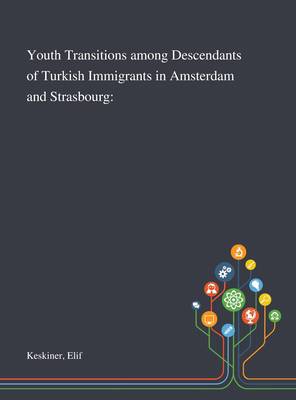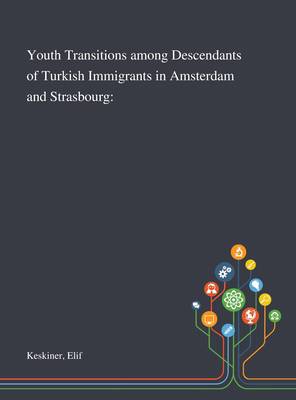
- Afhalen na 1 uur in een winkel met voorraad
- Gratis thuislevering in België vanaf € 30
- Ruim aanbod met 7 miljoen producten
- Afhalen na 1 uur in een winkel met voorraad
- Gratis thuislevering in België vanaf € 30
- Ruim aanbod met 7 miljoen producten
Zoeken
Youth Transitions Among Descendants of Turkish Immigrants in Amsterdam and Strasbourg
Elif Keskiner
Hardcover | Engels
€ 73,45
+ 146 punten
Omschrijving
This open access book maps the youth transitions of descendants of migrants from Turkey living in Amsterdam and Strasbourg, through a comparative mixed-methods research design. As such, it is of interest to discussions in youth sociology, social mobility and second-generation research. The book follows transition trajectories of the second-generation, from school to activity or inactivity in the labour market, to marriage or further study and, deepens our understanding of transitions by unravelling the macro and micro mechanisms behind individual pathways. On the one hand, the author reveals the ongoing significance of distinct macro institutional settings as well as social structures such as social class, ethnicity and gender in shaping the youth transition experience. On the other, she shows that youth transitions are not predestined to social reproduction when institutional and social structures create conditions for the development of resources necessary for social mobility. Therefore, through an examination of how immigrants' descendants develop forms of capital in their social trajectories, in relation to institutional and social structures, the book advances the theoretical discussion on Bourdieu's capital theory. Moreover, in times when native-born descendants of immigrants are at the forefront of public debate being subjected to normative integration demands, the book significantly shifts the lens and draws our attention to the daily challenges and realities faced by ethnic minority youth. This work was published by Saint Philip Street Press pursuant to a Creative Commons license permitting commercial use. All rights not granted by the work's license are retained by the author or authors.
Specificaties
Betrokkenen
- Auteur(s):
- Uitgeverij:
Inhoud
- Aantal bladzijden:
- 158
- Taal:
- Engels
Eigenschappen
- Productcode (EAN):
- 9781013272356
- Verschijningsdatum:
- 8/10/2020
- Uitvoering:
- Hardcover
- Formaat:
- Genaaid
- Afmetingen:
- 216 mm x 279 mm
- Gewicht:
- 662 g

Alleen bij Standaard Boekhandel
+ 146 punten op je klantenkaart van Standaard Boekhandel
Beoordelingen
We publiceren alleen reviews die voldoen aan de voorwaarden voor reviews. Bekijk onze voorwaarden voor reviews.











